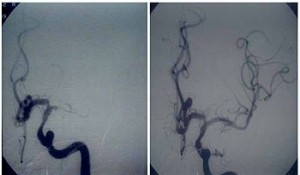“Time is Brain”: Stroke should be treated as an Emergency
Clot dissolver (or thrombolytic therapy) is one of the most promising treatments for acute ischaemic stroke.The majority of strokes, up to 80% of all strokes, are due to blockage of an artery in the brain by a blood clot.
Prompt treatment with clot dissolving (thrombolytic) drugs can restore blood flow before major brain damage has occurred. Successful treatment could mean the patient is more likely to make a good recovery from their stroke. Thrombolytic drugs can also, however, cause serious bleeding in the brain, which can be fatal in some cases.
The thrombolytic drug alteplase (rt-PA) has been licensed for use within 4.5 hours of stroke in the USA, Canada, India and most European countries but only few patients receive the treatment. Thrombolytic therapy has now been evaluated in several randomised trials in acute ischaemic stroke. A review of 26 trials involving 7152 patients confirmed that thrombolytic treatment can reduce the risk of disability, despite the bleeding risks.
Mechanical clot retrieval can restore normal blood flow by using a special device such as a stent retriever, which traps clots for removal from the artery. This device has shown to improve outcomes in recent studies. The device can be used upto 8 hours of stroke onset for good results. Dr Manish Sinha performs mechanical clot retrieval.
